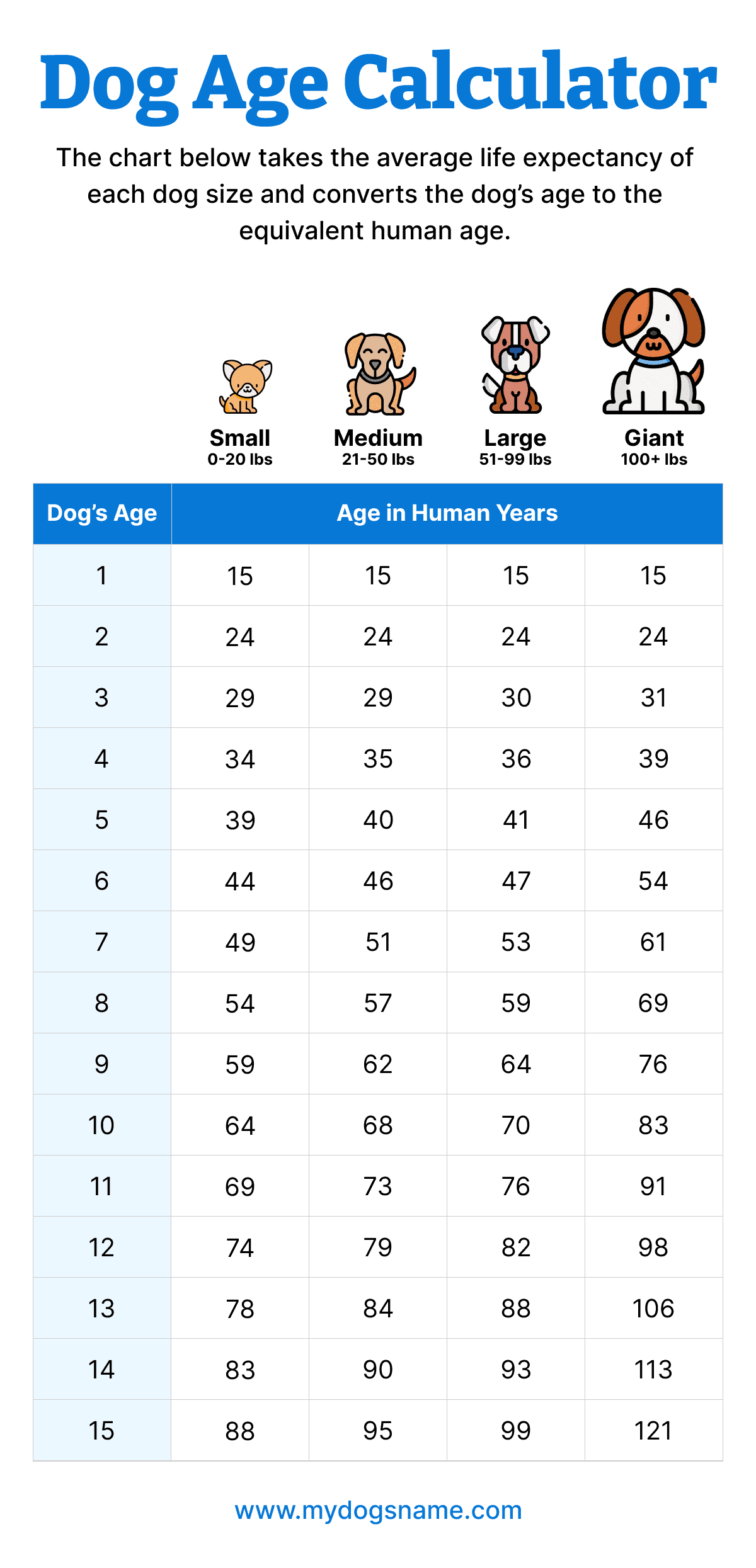Have you ever wondered how old your furry best friend really is? Dog man age is a fascinating topic that every pet owner should understand. We’ve all heard the myth that one dog year equals seven human years, but is it really that simple? Let’s dive into the science behind this and uncover the truth about how our beloved pups age compared to us humans.
Picture this: you’re sitting on the couch, your loyal companion resting their head on your lap. You start thinking about how much they’ve grown since the day you brought them home. But how do you know exactly how old they are in human years? Understanding dog man age isn’t just about satisfying curiosity; it’s about ensuring your dog lives a long, healthy life.
As a dog owner, it’s crucial to grasp the concept of dog man age because it directly impacts your pet’s health and well-being. By knowing how your dog ages, you can tailor their diet, exercise, and veterinary care to match their life stage. Let’s explore this topic together and uncover the secrets behind the aging process of our four-legged friends.
- Big Brothers Jean Jordan The Ultimate Guide To Her Journey Achievements And Impact
- Penny Auction The Thrilling World Of Bargain Hunting
Here’s what we’ll cover in this article:
- What is Dog Man Age?
- How Dogs Age Compared to Humans
- Factors Affecting Dog Man Age
- Common Myths About Dog Aging
- Scientific Research on Dog Man Age
- How to Calculate Dog Man Age
- Tips for Caring for Your Aging Dog
- FAQs About Dog Man Age
- Conclusion and Next Steps
What is Dog Man Age?
Let’s break it down. Dog man age refers to the comparison between a dog’s age and a human’s age. It’s not just about counting years; it’s about understanding how their bodies develop and age over time. While the “one dog year equals seven human years” rule is a fun starting point, it’s not entirely accurate. Dogs age differently depending on their breed, size, and genetics.
In reality, a dog’s first year of life is equivalent to about 15 human years. That’s because they grow and mature much faster during their early stages. By the time they hit two years old, they’re roughly 24 in human years. After that, the aging process slows down, and each additional dog year adds around four to five human years. Cool, right?
- Louise Keaton The Rising Star You Need To Know About
- Why Lv Swimsuit Is The Ultimate Fashion Statement This Summer
Why Understanding Dog Man Age Matters
Knowing your dog’s age in human years isn’t just a fun factoid to share at parties. It’s actually a critical piece of information for ensuring their health and happiness. For example, if your dog is entering their senior years, you might need to adjust their diet to include fewer calories and more joint-supporting nutrients. Understanding dog man age also helps you anticipate potential health issues and prepare for them in advance.
How Dogs Age Compared to Humans
Dogs age faster than humans, but the rate at which they age can vary significantly. Unlike humans, who age relatively consistently throughout their lives, dogs experience rapid growth during their early years followed by a slower aging process later on. This means that a one-year-old dog is actually more like a teenager in human years, while a five-year-old dog is closer to a middle-aged adult.
Interestingly, the aging process also depends on the dog’s size. Smaller breeds tend to live longer and age more slowly than larger breeds. For instance, a Chihuahua might live to be 15-20 years old, while a Great Dane might only make it to 8-10 years. This difference in lifespan means that their aging process is unique to their breed and size.
Breaking Down the Age Comparison
Here’s a quick breakdown of how dog years compare to human years:
- 1 dog year = 15 human years
- 2 dog years = 24 human years
- 3 dog years = 28 human years
- 4 dog years = 32 human years
- 5 dog years = 36 human years
- 6+ dog years = Add 4-5 human years per dog year
Factors Affecting Dog Man Age
While genetics play a big role in how dogs age, there are other factors to consider as well. Diet, exercise, and overall lifestyle can significantly impact your dog’s lifespan and quality of life. For example, a dog that eats a balanced diet and gets plenty of exercise is likely to live longer and age more gracefully than one that doesn’t.
Additionally, environmental factors like exposure to toxins or stress can affect how quickly your dog ages. Just like with humans, a healthy lifestyle can make a big difference in how long your dog lives and how well they age.
The Role of Breed and Size
As mentioned earlier, breed and size are two of the biggest factors affecting dog man age. Smaller breeds tend to live longer and age more slowly, while larger breeds age faster and have shorter lifespans. This is because larger dogs put more strain on their bodies, especially their joints and organs, which can lead to earlier signs of aging.
Common Myths About Dog Aging
There are plenty of myths out there about how dogs age, and it’s time to set the record straight. One of the biggest misconceptions is the “seven-year rule,” which suggests that one dog year equals seven human years. While it’s a fun and easy way to estimate your dog’s age, it’s not entirely accurate. As we’ve already discussed, dogs age faster in their early years and slower as they get older.
Another myth is that all dogs age at the same rate. In reality, different breeds and sizes age at different speeds, as we’ve already explored. Understanding these differences is key to providing the best care for your furry friend.
Separating Fact from Fiction
Here are some common myths about dog aging and the truth behind them:
- Myth: All dogs age the same way.
Truth: Different breeds and sizes age at different rates. - Myth: Dogs stop growing after one year.
Truth: While they may reach their full size by one or two years old, their bodies continue to develop and mature for several years. - Myth: Older dogs can’t learn new tricks.
Truth: Dogs of any age can learn new things with patience and consistency.
Scientific Research on Dog Man Age
Scientists have been studying dog aging for years, and their findings are fascinating. One study published in the journal Cell Systems revealed that dogs age faster in their early years but slow down significantly after the first two years. The researchers developed a formula to more accurately calculate dog man age based on changes in DNA methylation patterns, which are markers of aging.
Another study found that smaller breeds age more slowly than larger breeds, confirming what many dog owners already suspected. These studies help us better understand how dogs age and how we can improve their quality of life as they get older.
What the Experts Say
According to Dr. Sarah Brown, a veterinary expert at the American Veterinary Medical Association, “Understanding how dogs age is crucial for providing them with the best possible care. By tailoring their diet, exercise, and veterinary visits to their life stage, we can help them live longer, healthier lives.”
How to Calculate Dog Man Age
Now that you know the basics of dog man age, let’s talk about how to calculate it. While there’s no one-size-fits-all formula, the following method is a good starting point:
For the first two years: Multiply your dog’s age by 10.5.
For every year after that: Add 4 human years for each dog year.
For example, if your dog is three years old:
- First two years: 2 x 10.5 = 21 human years
- Third year: 21 + 4 = 25 human years
So, a three-year-old dog is roughly 25 in human years. Easy peasy, right?
Using Online Calculators
If you’re not a math whiz, don’t worry! There are plenty of online calculators that can do the work for you. Simply enter your dog’s age and breed, and the calculator will give you an estimate of their human age. Just remember that these calculators are based on averages and may not be 100% accurate for every dog.
Tips for Caring for Your Aging Dog
As your dog enters their senior years, their needs will change. Here are some tips for keeping them healthy and happy:
- Adjust their diet: Older dogs may need fewer calories and more joint-supporting nutrients like glucosamine and chondroitin.
- Encourage exercise: Even if your dog isn’t as spry as they used to be, regular exercise is still important for maintaining muscle mass and joint health.
- Visit the vet regularly: Senior dogs should have check-ups at least twice a year to catch any potential health issues early.
- Provide comfort: Make sure your dog has a comfortable bed and easy access to their favorite spots in the house.
Signs of Aging in Dogs
As your dog gets older, you may notice changes in their behavior and physical appearance. Some common signs of aging include:
- Gray hair around the muzzle
- Reduced energy levels
- Joint stiffness or pain
- Cloudy eyes or vision loss
- Hearing loss
If you notice any of these signs, it’s a good idea to consult your vet to rule out any underlying health issues.
FAQs About Dog Man Age
Here are some frequently asked questions about dog man age:
- Q: Can I slow down my dog’s aging process?
A: While you can’t stop the aging process entirely, you can help your dog age more gracefully by providing a healthy diet, regular exercise, and proper veterinary care. - Q: How long do dogs typically live?
A: The average lifespan of a dog is 10-13 years, but this can vary depending on breed and size. - Q: Is it ever too late to start caring for my aging dog?
A: Never! Even if your dog is already in their senior years, making small changes to their diet and routine can improve their quality of life.
Conclusion and Next Steps
Understanding dog man age is an important part of being a responsible pet owner. By knowing how your dog ages compared to humans, you can provide them with the care they need to live a long, healthy life. Whether it’s adjusting their diet, encouraging exercise, or visiting the vet regularly, there are plenty of ways to ensure your furry friend stays happy and healthy as they grow older.
So, what’s the next step? Start by calculating your dog’s human age using the method we discussed earlier. Then, take a look at their current diet and exercise routine and see if there are any areas for improvement. And don’t forget to schedule those regular vet visits!
Feel free to leave a comment below sharing your thoughts on dog man age or asking any questions you might have. And if you found this article helpful, be sure to share it with your fellow dog lovers!
- Xo Gisele Selfie The Ultimate Guide To The Trend Thats Taking Over
- Escaped Prisoner Nyc The Untold Story You Wont Believe


